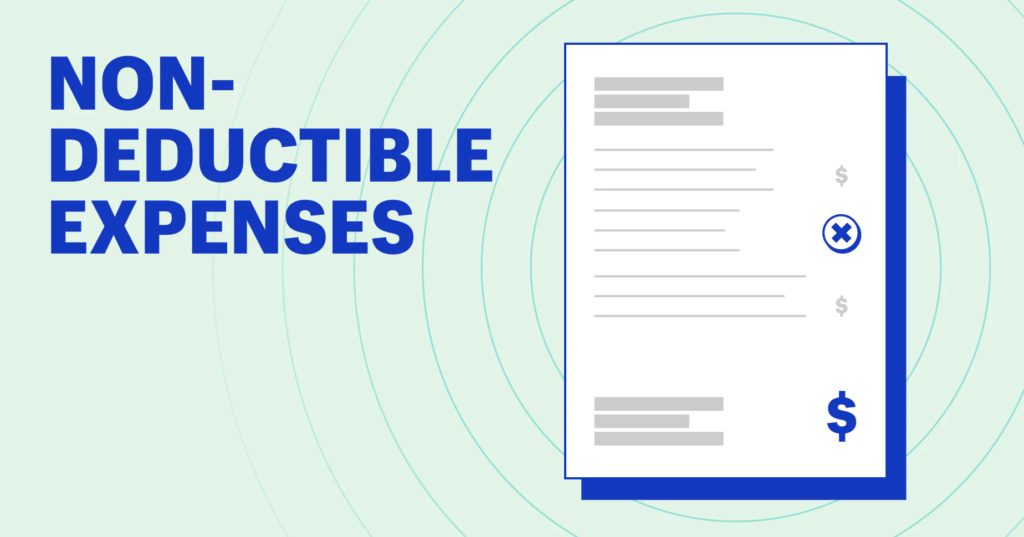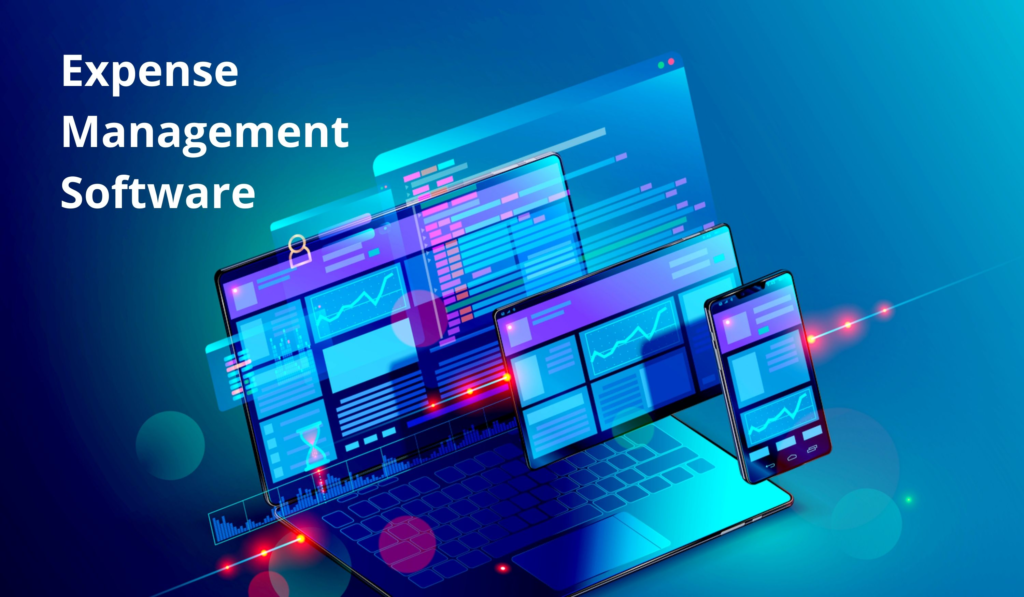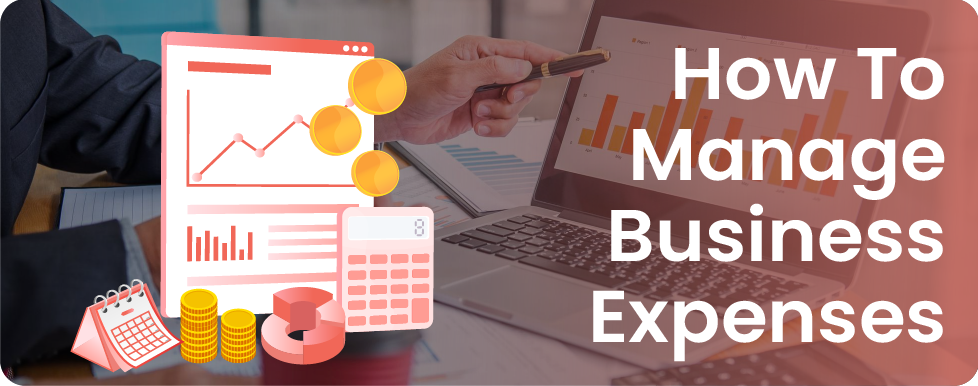Managing business expenses is crucial for ensuring the financial health of any company. Whether you’re running a small startup or managing a large corporation, understanding your business expenses and how to manage them effectively can make or break your success. Proper expense management ensures that you are not overspending, helps you identify areas for cost savings, and increases your profitability.
In this article, we’ll delve into what business expenses are, categorize them, and provide tips on how to manage them efficiently. Additionally, we’ll answer frequently asked questions to clarify any doubts you may have about business expenses and how to handle them.
Key Takeaways
- Business Expenses: These are the costs incurred in running your business, and they can be classified as fixed, variable, operating, and capital expenses.
- Effective Management: To manage business expenses effectively, track all expenses, create a budget, prioritize spending, look for cost-cutting opportunities, monitor cash flow, automate processes, and regularly review financial statements.
- Tax Considerations: Some business expenses are tax-deductible, but understanding which expenses qualify is essential for optimizing your tax filings.
- Tools and Resources: Utilize accounting software and consult with professionals to streamline expense management and maintain a healthy financial profile.
What Are Business Expenses?
Understanding Business Expenses
Business expenses refer to the costs incurred by a company as part of its regular operations. These expenses are necessary for producing goods or services, running day-to-day activities, and maintaining the business’s financial health. They can include a wide range of items, such as rent, utilities, salaries, raw materials, and advertising costs.
In simple terms, business expenses are the money spent to keep a business running smoothly and help it generate income. These expenses can be classified into different categories, depending on the nature of the business.
Types of Business Expenses
Understanding the various types of business expenses is key to managing them effectively. Expenses can be classified into the following categories:
1. Fixed Expenses
Fixed expenses are costs that remain constant over time, regardless of the business’s performance. These expenses are usually incurred on a regular basis, such as monthly or yearly. Examples include:
- Rent or mortgage for office space or facilities
- Salaries and wages for employees
- Insurance premiums
- Loan payments
These expenses are typically easy to predict, allowing businesses to budget effectively.
2. Variable Expenses
Variable expenses fluctuate depending on business activities, sales, or production levels. The more you produce or sell, the higher these costs will be. Examples of variable expenses include:
- Raw materials used in production
- Utility bills that depend on usage
- Sales commissions for employees
- Shipping and delivery costs
These expenses can vary from month to month, and businesses need to track them closely to ensure profitability.
3. Operating Expenses
Operating expenses (OPEX) refer to the costs associated with running the daily operations of the business. These include both fixed and variable costs, such as:
- Rent
- Utilities
- Marketing and advertising
- Office supplies
Operating expenses are crucial for sustaining business operations and should be carefully monitored to avoid overspending.
4. Capital Expenses
Capital expenses (CapEx) are long-term investments that help grow or maintain the business. These expenses are typically higher in value and are often depreciated over time. Examples include:
- Purchasing machinery or equipment
- Building or office renovations
- Investing in software or technology
CapEx is usually planned in advance and may be financed through loans or business savings.
5. Non-Deductible Expenses

Some expenses are non-deductible for tax purposes. These costs cannot be written off on your taxes, and understanding which expenses fall under this category is important. Examples include:
- Fines and penalties for breaking laws or regulations
- Personal expenses that are not related to business operations
- Political contributions
Knowing the difference between deductible and non-deductible expenses can help you avoid costly mistakes during tax season.
How Can You Effectively Manage Business Expenses?
Managing your business expenses is key to staying profitable and ensuring the financial success of your company. Here are some strategies to help you manage your expenses effectively:
1. Track All Expenses
Tracking every expense, no matter how small, is vital for controlling costs. Use accounting software or tools like QuickBooks, FreshBooks, or Xero to track expenses automatically. Keeping an eye on every dollar spent ensures that you are aware of where your money is going and can make adjustments accordingly.
Tip: Categorize your expenses into fixed, variable, and one-time costs to help with budgeting and analysis.
2. Create a Budget
A well-planned budget is a critical tool for managing business expenses. A budget helps set expectations for income and expenses, ensuring that you’re not overspending or underfunding any aspect of your business. Make sure to regularly update the budget based on actual expenses and business performance.
Tip: Include a contingency fund in your budget to account for unexpected costs, such as equipment repairs or emergency expenses.
3. Prioritize Spending
Not all business expenses are equally important. It’s essential to prioritize spending based on what’s most important for the growth and stability of your business. Consider separating essential expenses (like payroll and rent) from discretionary costs (like advertising or office upgrades) to focus on what truly matters.
Tip: Review your budget regularly to identify unnecessary or redundant expenses that can be reduced or eliminated.
4. Look for Cost-Cutting Opportunities
Regularly review your expenses to identify areas where you can cut costs without sacrificing quality or performance. This could involve:
- Negotiating better rates with suppliers or service providers
- Outsourcing certain tasks to reduce labor costs
- Switching to more affordable marketing channels
- Reducing energy consumption
Tip: Encourage employees to suggest cost-saving ideas and implement the best ones to improve business efficiency.
5. Monitor Cash Flow
Cash flow management is essential for businesses to remain solvent. Keep track of your cash inflows and outflows regularly to ensure that your business has enough working capital to meet its obligations. Delays in invoicing or late payments can affect your ability to cover expenses on time.
Tip: Use tools like cash flow statements to gain insights into your business’s financial health and plan for future expenses.
6. Automate and Streamline Processes
Use automation tools to streamline your expense management processes. This could include automating invoicing, payments, payroll, and inventory tracking. Automation reduces manual effort, minimizes human error, and helps businesses stay organized.
Tip: Set up recurring payments for regular expenses like rent and utilities to ensure timely payment without needing manual intervention.
7. Regularly Review Your Financial Statements
Review your financial statements, including profit and loss statements, balance sheets, and cash flow reports, to understand where your money is going. These documents help you assess your financial position and ensure that your expenses align with your business goals.
Tip: Consult with a financial advisor or accountant to analyze your financial statements and identify potential areas of improvement.
Certainly! Here are the topics with h2 tags as requested:
The Importance of Cash Flow Management for Small Businesses

Overview:
Cash flow management is crucial for small businesses to ensure that there is enough money to cover operational expenses, such as paying bills, employees, and suppliers. Without proper cash flow management, even profitable businesses can face financial difficulties.
Details:
- Cash Flow Basics: Understand the difference between cash inflows (revenue) and outflows (expenses), and how to maintain a positive cash flow.
- Strategies to Improve Cash Flow: Focus on timely invoicing, reducing expenses, maintaining a cash reserve, and offering discounts to customers for early payments.
- Using Cash Flow Forecasting: Learn how forecasting cash flow helps anticipate future financial needs and adjust accordingly to avoid potential shortfalls.
Cost-Cutting Strategies Without Sacrificing Quality
Overview:
Reducing business expenses doesn’t always mean sacrificing quality. Many businesses can find ways to cut costs while maintaining or even improving the quality of their products or services.
Details:
- Negotiate with Suppliers: Discuss discounts for bulk purchases or long-term contracts to reduce material costs.
- Outsource Non-Essential Tasks: Outsourcing administrative tasks like payroll, IT support, or customer service can reduce labor costs without sacrificing quality.
- Energy Efficiency: Invest in energy-saving equipment or reduce utility costs through smarter energy usage.
- Streamlining Operations: Automate repetitive tasks, reduce waste in production, and improve overall workflow to increase efficiency and lower operational costs.
The Role of Budgeting in Effective Business Expense Management
Overview:
A solid budget is a critical tool in controlling business expenses. A well-planned budget allows business owners to allocate resources effectively, avoid overspending, and maintain profitability.
Details:
- Setting Up a Realistic Budget: Break down your budget into categories (operating costs, marketing, payroll, etc.) and set limits for each.
- Adjusting for Seasonal Changes: Many businesses experience fluctuations in revenue throughout the year. A good budget should account for these seasonal changes in income and expenses.
- Tracking Actual vs. Budgeted Expenses: Regularly compare actual spending to the budget to see where adjustments are needed.
- Implementing Contingency Funds: Set aside a contingency fund in case of unexpected expenses like emergency repairs or legal fees.
Understanding the Tax Implications of Business Expenses
Overview:
Not all business expenses are tax-deductible. Understanding which expenses can be written off on your taxes is crucial for maximizing savings and avoiding costly mistakes.
Details:
- Deductible Expenses: Learn about common deductible business expenses, such as office supplies, travel, and employee wages.
- Non-Deductible Expenses: Understand which expenses are not deductible, such as personal expenses or fines.
- Documenting Expenses: Keep accurate records of your business expenses, including receipts, invoices, and bank statements, for tax purposes.
- Consulting with a Tax Professional: Working with an accountant or tax professional ensures that you’re maximizing your tax deductions and complying with tax laws.
The Benefits of Outsourcing Business Operations
Overview:
Outsourcing can be a cost-effective way to reduce expenses while accessing specialized expertise. This topic explores how outsourcing certain business functions can lead to greater efficiency and savings.
Details:
- Outsourcing Non-Core Activities: Non-essential tasks, such as accounting, customer service, or IT support, can be outsourced to external experts, freeing up internal resources for core business activities.
- Cost Savings and Flexibility: Outsourcing can save money on recruitment, training, and employee benefits while offering greater flexibility in managing workload fluctuations.
- Choosing the Right Partners: It’s important to select reliable outsourcing partners to ensure quality and cost-effectiveness. Evaluate vendors carefully and ensure they align with your business goals.
How to Optimize Your Supply Chain to Lower Expenses
Overview:
The supply chain is one of the most significant areas where businesses can reduce costs. By improving efficiencies, negotiating better terms, and optimizing logistics, businesses can lower their overall expenses.
Details:
- Supplier Negotiations: Build strong relationships with suppliers to negotiate better rates and terms. Consider bulk purchasing for discounts.
- Inventory Management: Reduce excess inventory to minimize storage costs, and implement just-in-time inventory systems to save on stock holding costs.
- Efficient Shipping: Optimize logistics by working with cost-effective shipping carriers, consolidating shipments, and using technology to streamline supply chain operations.
How Technology Can Help in Expense Management

Overview:
Technology plays a key role in modern businesses, and its role in managing expenses is no exception. From accounting software to automated systems, technology can simplify expense tracking and management.
Details:
- Cloud-Based Accounting Tools: Platforms like QuickBooks, FreshBooks, and Xero can automate invoicing, payroll, expense tracking, and financial reporting.
- Expense Management Apps: Mobile apps help employees submit expenses quickly and track business-related purchases.
- Data Analytics: Leverage data analytics tools to analyze spending patterns, identify inefficiencies, and forecast future expenses.
- Inventory Management Software: Use tools to track inventory in real time, ensuring that you only purchase what’s necessary and avoid unnecessary storage costs.
Managing Employee Expenses Effectively
Overview:
Employee-related expenses, such as travel, meals, and office supplies, are a common part of business operations. Managing these costs effectively is important for maintaining profitability.
Details:
- Clear Expense Policies: Set clear guidelines for employees about what qualifies as a reimbursable expense. This reduces misunderstandings and ensures that only valid business expenses are submitted.
- Automated Approval Systems: Implement automated approval processes for employee expenses to streamline reimbursement and ensure compliance with company policies.
- Expense Reporting Software: Use software that allows employees to submit receipts and track expenses, making the reimbursement process faster and more efficient.
The Impact of Business Travel on Expenses
Overview:
Business travel can be a significant expense, but with careful planning and strategic decisions, companies can manage travel costs more effectively.
Details:
- Booking Strategies: Book flights, hotels, and car rentals in advance, and take advantage of corporate discounts and loyalty programs.
- Per Diem Rates: Set per diem rates for meals and incidentals, which provide employees with a set amount of money for travel-related expenses.
- Tracking Travel Costs: Implement systems to track business travel expenses and ensure employees stay within budget during trips.
The Relationship Between Business Expenses and Profit Margins
Overview:
Understanding how business expenses affect profit margins is crucial for making informed financial decisions. This topic will explain how businesses can balance expenses and revenue to maintain healthy profit margins.
Details:
- Fixed vs. Variable Costs: Learn how fixed and variable costs contribute to overall expenses and how they affect profit margins.
- Cost of Goods Sold (COGS): Track the direct costs associated with producing goods or services and understand how reducing COGS can improve profitability.
- Profit Margin Strategies: Focus on increasing revenue and decreasing expenses to improve your profit margins. Regularly monitor both to ensure your business remains financially viable.
The Role of Financial Forecasting in Managing Business Expenses
Overview:
Financial forecasting helps businesses plan for future expenses by predicting revenue and expenses. This helps create strategies for managing costs and maximizing profits.
Details:
- Revenue and Expense Projections: Use historical data to forecast future revenue and expenses, which will help you anticipate cash flow needs and avoid shortages.
- Scenario Planning: Create different financial scenarios based on best, worst, and expected-case situations, helping you prepare for potential changes in business conditions.
- Dynamic Adjustments: Regularly update your forecasts based on actual performance to ensure that you stay on track with your financial goals.
Read More : What is a Business Credit Score and How Does It Impact Your Business?
Conclusion
Managing business expenses effectively is crucial for maintaining the financial health and stability of your company. By tracking your expenses, creating a budget, prioritizing spending, and regularly reviewing your financial performance, you can control your costs, increase profitability, and ensure long-term success.
Understanding your expenses and identifying areas for improvement can empower you to make smarter financial decisions, optimize your cash flow, and grow your business with confidence. Remember that expense management is an ongoing process, and small changes can have a significant impact over time.
FAQs
1. What are the most common types of business expenses?
The most common types of business expenses are operating expenses (like rent, utilities, and salaries), fixed expenses (such as insurance and loan payments), and variable expenses (like raw materials and shipping costs).
2. How can I reduce my business expenses?
To reduce business expenses, track your spending, negotiate better rates with vendors, outsource non-essential tasks, and prioritize essential spending. Identifying wasteful or unnecessary costs and eliminating them can also help.
3. What is the difference between fixed and variable expenses?
Fixed expenses remain constant over time, such as rent and salaries, while variable expenses fluctuate based on business activity, such as raw materials, commissions, or shipping costs.
4. Can business expenses be tax-deductible?
Yes, many business expenses are tax-deductible, including operating expenses, travel expenses, and office supplies. However, some expenses like fines or personal costs may not be deductible.
5. Should I hire an accountant to manage my business expenses?
Hiring an accountant can help ensure that your expenses are managed effectively and in compliance with tax laws. An accountant can also provide financial advice and help you avoid costly mistakes.
6. How often should I review my business expenses?
It’s important to review your business expenses regularly—at least monthly. Regular reviews will help you identify trends, catch any discrepancies, and make informed decisions about your spending.
7. What software can I use to track my business expenses?
There are various accounting software options available, including QuickBooks, FreshBooks, Xero, and Zoho Books. These tools help automate expense tracking, generate financial reports, and keep your business finances organized.




